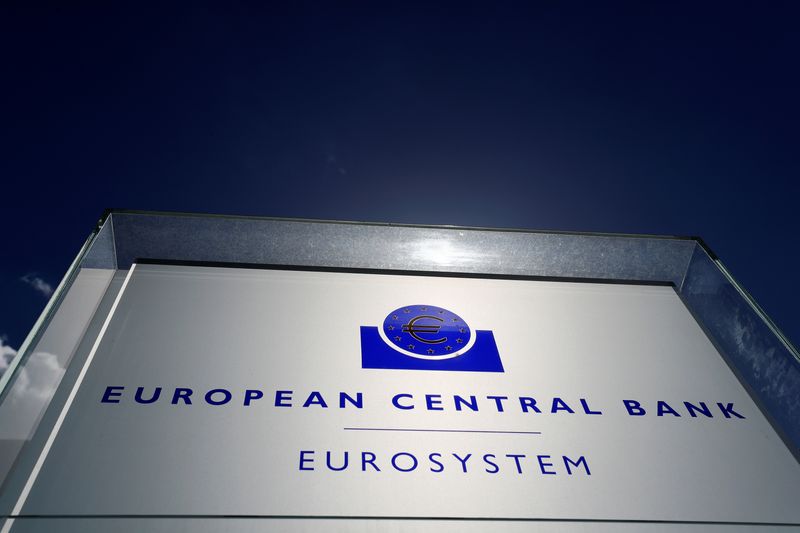FRANKFURT (Reuters) -The European Central Bank said on Thursday it had picked a Portuguese startup focussed on artificial intelligence to help prevent frauds in its planned digital euro currency.
The contract with Feedzai, worth up to 237.3 million euros ($278.69 million), is one of several announced by the ECB on Thursday to advance a project that it sees as key for the euro zone’s financial autonomy from the United States.
Under it, Feedzai and its subcontractor PwC will provide an AI model for scoring digital euro payments by their fraud risk, based on any deviation from a customer’s typical behaviour, interactions and history.
This is aimed at helping payment service providers decide whether to approve a transaction in digital euros, essentially an exchange between electronic wallets backed by the central bank.
The four-year agreement has an estimated value of 79.1 million euros and a cap at 237.3 million euros.
Four further digital euro contracts worth between 27.6 million euros and 220.7 million euros were awarded to other companies, including to French IT consulting firm Capgemini.
Under such framework agreements, the ECB won’t pay “a penny until the project actually starts”, board member Piero Cipollone said last month.
The central bank is still awaiting legislative approval for its digital euro, which it has pitched as a response to Visa and Mastercard’s dominance and to U.S. President Donald Trump‘s promotion of stablecoins pegged to the dollar.
It hopes to receive the go-ahead around the middle of next year, with a view to launching the digital currency in 2029.
Registered in Coimbra, Portugal, Feedzai says it processes $8 trillion worth of payments every year for clients including Portuguese bank Novobanco and Abu Dhabi’s Wio Bank.
($1 = 0.8515 euros)
(Reporting By Francesco CanepaEditing by Tomasz Janowski)
FRANKFURT (Reuters) -The European Central Bank said on Thursday it had picked a Portuguese startup focussed on artificial intelligence to help prevent frauds in its planned digital euro currency.
The contract with Feedzai, worth up to 237.3 million euros ($278.69 million), is one of several announced by the ECB on Thursday to advance a project that it sees as key for the euro zone’s financial autonomy from the United States.
Under it, Feedzai and its subcontractor PwC will provide an AI model for scoring digital euro payments by their fraud risk, based on any deviation from a customer’s typical behaviour, interactions and history.
This is aimed at helping payment service providers decide whether to approve a transaction in digital euros, essentially an exchange between electronic wallets backed by the central bank.
The four-year agreement has an estimated value of 79.1 million euros and a cap at 237.3 million euros.
Four further digital euro contracts worth between 27.6 million euros and 220.7 million euros were awarded to other companies, including to French IT consulting firm Capgemini.
Under such framework agreements, the ECB won’t pay “a penny until the project actually starts”, board member Piero Cipollone said last month.
The central bank is still awaiting legislative approval for its digital euro, which it has pitched as a response to Visa and Mastercard’s dominance and to U.S. President Donald Trump‘s promotion of stablecoins pegged to the dollar.
It hopes to receive the go-ahead around the middle of next year, with a view to launching the digital currency in 2029.
Registered in Coimbra, Portugal, Feedzai says it processes $8 trillion worth of payments every year for clients including Portuguese bank Novobanco and Abu Dhabi’s Wio Bank.
($1 = 0.8515 euros)
(Reporting By Francesco CanepaEditing by Tomasz Janowski)

